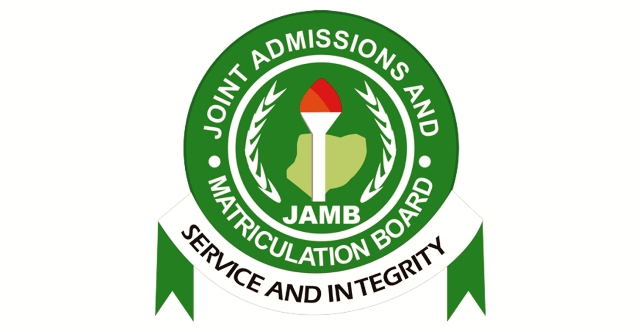Oil & Energy
Five Win NDDC GEMS Contest …Get N5m Each

Residents of Chika and Aleita protesting over outrageous March electricity bill and lack of functional electricity transformer in Abuja last Friday.
Five female secondary
school students have won the Niger Delta Development Commission (NDDC’s) scholarship to pursue their educational career up to tertiary level.
A statement issued Thursday in Port Harcourt by the Commission’s Head of corporate Affairs Unit, Chijioke Amu-Nnadi, said the students from Rivers, Akwa Ibom, Cross River and Ondo States emerged winners from NDDC-Sponsored “Girls in Engineering, Mathematics and Science (GEMS) Competition.
According to Amu-Nnadi, total sum of the award is N25million and each of the winners will benefit N5 million. The winners are Ayomide Adeyeye, Amarachi Orjuigo, Edidiong Frances Bassey, Blessing Jeremiah James and Grace Bassey.
The statement said, “Ayomide Adeyeye emerged over all winner at the competition’s grand finale, which featured 33 GEMS Finalists who were selected from three regional competitions organized by NDDC.”
It quoted the Acting Managing Director of NDDC, Mrs Ibim Semenitari as saying that the winners emerged from a rigorous elimination process that featured 2,880 girls from the region.
It further stated that the programme is aimed at promoting and encouraging female students who are innovative and research-minded to develop passion in disciplines such as Science, Technology, Engineering and Mathematics.
It expressed confidence that science and technology could become exciting in such a way that girls in the region can interpret science in a manner that can serve to resolve everyday challenges.
“GEMS is positioned to ignite a spark within every girl in the society to do great things for our society, the Niger Delta region, and for our collective future,” Semenitari stated, and called on corporate organizations including oil and gas companies in the region to partner with the commission to develop the girl-child in various “GEMS-related careers.”
In the statement, the Minister of Science, Technology and Innovation (STI), Dr. Ogbonnaya Onu, said the GEMS Programme provided the girl-child with unique opportunity to excel in male-dominated science disciplines.
It disclosed that the minister has also established a gender desk for women with objective of mentoring most importantly, the girl –child in primary and secondary schools.
The statement also quoted the minister as saying that,” the Niger Delta region is highly endowed with enormous human capital and natural resources which make it very strategic to the socio-economic development of the nation,” and promised that the ministry would partner with NDDC to develop women and the girl-child.
The minister, who was represented at the event by a Director in the ministry, Dr Nnenna Okoronkwo, urged the beneficiaries of the award not to relent in their pursuit of academic excellence.
Chris Oluoh
Oil & Energy
FG Explains Sulphur Content Review In Diesel Production
The Federal Government has offered explanation with regard to recent changes to fuel sulphur content standards for diesel.
The Government said the change was part of a regional harmonisation effort, not a relaxation of regulations for local refineries.
The Chief Executive, Nigerian Midstream and Downstream Petroleum Regulatory Authority (NMDPRA), Farouk Ahmed, told newsmen that the move was only adhering to a 2020 decision by the Economic Community of West African States (ECOWAS) which mandated a gradual shift to cleaner fuels across the region.
Ahmed said the new limits comply with the decision by ECOWAS that mandated stricter fuel specifications, with enforcement starting in January 2021 for non-ECOWAS imports and January 2025 for ECOWAS refineries.
“We are merely implementing the ECOWAS decision adopted in 2020. So, a local refinery with a 650 ppm sulphur in its product is permissible and safe under the ECOWAS rule until January next year where a uniform standard would apply to both the locally refined and imported products outside West Africa”, Ahmed said.
He said importers were notified of the progressive reduction in allowable sulphur content, reaching 200 ppm this month from 300 ppm in February, well before the giant Dangote refinery began supplying diesel.
Recall that an S&P Global report, last week, noted a significant shift in the West African fuel market after Nigeria altered its maximum diesel sulphur content from 200 parts per million (ppm) to around 650 ppm, sparking concerns it might be lowering its standards to accommodate domestically produced diesel which exceeds the 200 ppm cap.
High sulphur content in fuels can damage engines and contribute to air pollution. Nevertheless, the ECOWAS rule currently allows locally produced fuel to have a higher sulphur content until January 2025.
At that point, a uniform standard of below 5 ppm will apply to both domestic refining and imports from outside West Africa.
Importers were previously permitted to bring in diesel with a sulphur content between 1,500 ppm and 3,000 ppm.
It would be noted that the shift to cleaner fuels aligns with global environmental efforts and ensures a level playing field for regional refiners.
Oil & Energy
PHED Implements April 2024 Supplementary Order To MYTO
The Port Harcourt Electricity Distribution (PHED) plc says it has commenced implementation of the April 2024 Supplementary Order to the MYTO in its franchise area while assuring customers of improved service delivery.
The Supplementary order, which took effect on April 3, 2024, emphasizes provisions of the MYTO applicable to customers on the Band A segment taking into consideration other favorable obligations by the service provider to Band A customers.
The Head, Corporate Communications of the company, Olubukola Ilvebare, revealed that under the new tariff regime, customers on Band A Feeders who typically receive a minimum supply of power for 20hours per day, would now be obliged to pay N225/kwh.
“According to the Order, this new tariff is modeled to cushion the effects of recent shifts in key economic indices such as inflation rates, foreign exchange rates, gas prices, as well as enable improved delivery of other responsibilities across the value chain which impact operational efficiencies and ability to reliably supply power to esteemed customers.
“PHED assures Band A customers of full compliance with the objectives of the new tariff order”, he stated.
Ilvebare also said the management team was committed to delivering of optimal and quality services in this cost reflective dispensation.
The PHED further informed its esteemed customers on the other service Bands of B, C D & E, that their tariff remains unchanged, adding that the recently implemented supplementary order was only APPLICABLE to customers on Band A Feeders.
Oil & Energy
PH Refinery: NNPCL Signs Agreement For 100,000bpd-Capacity Facility Construction

The Nigerian National Petroleum Company Ltd (NNPCL) has announced the signing of an agreement with African Refinery for a share subscription agreement with Port-Harcourt Refinery.
The agreement would see the co-location of a 100,000bpd refinery within the Port-Harcourt Refinery complex.
This was disclosed in a press statement on the company’s official X handle detailing the nitty-gritty of the deal.
According to the NNPCL, the new refinery, when operational, would produce PMS, AGO, ATK, LPG for both the local and international markets.
It stated, “NNPC Limited’s moves to boost local refining capacity witnessed a boost today with the signing of share subscription agreement between NNPC Limited and African Refinery Port Harcourt Limited for the co-location of a 100,000bpd capacity refinery within the PHRC complex.
“The signing of the agreement is a significant step towards setting in motion the process of building a new refinery which, when fully operational, will supply PMS, AGO, ATK, LPG, and other petroleum products to the local and international markets and provide employment opportunities for Nigerians.
By: Lady Godknows Ogbulu
-

 Business4 days ago
Business4 days ago‘Foreign Shipowners Deprive Nigeria Of $9.2bn Annually’
-
Opinion4 days ago
The Value Of Books And Reading
-

 News9 hours ago
News9 hours ago1.4m UTME Candidates Scored Below 200 -JAMB
-

 News4 days ago
News4 days agoFubara Wants Rivers Youths To Acquire Useful Skills
-

 Maritime4 days ago
Maritime4 days agoUnfair Treatment Of Seafarers Bothers IMO
-

 Rivers5 days ago
Rivers5 days agoCommittee Concludes Open Verification Of MIle 1 Market Allotees
-

 Education4 days ago
Education4 days agoBauchi Govt Threatens To Revoke Scholarship Of Unserious Students
-
News9 hours ago
Gunmen Kidnap Four In Abuja

